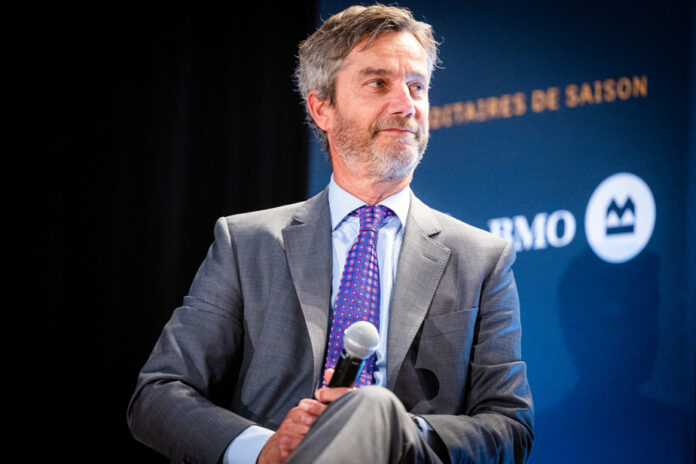Despite a year of higher risk-taking that ended in a loss of $224 million, half of the top-paid executives at Investissement Quebec (IQ) earn more than $1 million. Performance is not measured by performance, retorts the president and CEO of the state corporation, Guy LeBlanc.
The financial arm of the Quebec state has not been spared by the volatility and deterioration of economic conditions. An increase in provisions for losses – $130 million was set aside – and a decline in the value of investments resulted in the Crown corporation posting a negative return of 4.8% at the end of the l fiscal year ended March 31.
“You don’t measure IQ’s performance by its performance,” LeBlanc said Tuesday by videoconference. Unlike other investment funds, we measure our performance essentially by the role we play in the economy and with companies. »
The state-owned company mainly insisted on the theoretical aspect of the loss of 224 million. It is not about the “definitive performance of the value of the investments”, argued its leaders. They also focused on the five-year return, which reached 6.3%. This exceeds the average cost of equity which is equivalent to the government borrowing rate (2.1%), noted Mr. LeBlanc.
During the 2022-2023 fiscal year, IQ carried out 1,293 financial interventions, which is 189 less than the previous year. They total a value of 1.9 billion, down from the 2 billion recorded in 2021-2022.
“We had to be more proactive in the market,” says LeBlanc. With the context, companies had to postpone their projects. We had to work twice as hard to convince them to invest because some companies were not investing. »
IQ also takes more risks when it comes to lending money. About 58% of the loan portfolio was of “medium or low quality” last year, compared to 46% in 2021-2022. These are investments qualified as speculative – credit rating ranging from B to CCC – by major rating agencies such as Standard and Poor’s.
When asked, the big boss of IQ replied that 93% of the organization’s interventions are carried out with companies that have less than 200 employees, adding that these were not rated as well compared to large companies. .
“Company size is a factor,” says LeBlanc. That doesn’t mean it’s not [the loan] quality. »
Professor of accounting sciences at the University of Quebec in Montreal (UQAM) and specialized in governance, Saidatou Dicko partly agrees with the argument that IQ’s performance goes beyond the boundaries of its performance. Without going into the compensation aspect, she points out that the mandate is to “take risks” on companies that have not yet reached their “profitability phase”.
“This could lead to slightly riskier investments and necessarily a higher level of losses than in previous years in a more unstable economic environment,” she points out.
The last fiscal year also marks a turning point in terms of compensation at IQ with the payment of long-term bonuses, which stem from results recorded since 2019-2020. This resulted in three of the highest-paid executives earning an aggregate pay – which takes into account base salary, bonuses and other perks – in excess of $1 million.
Together, the top six bosses earned a salary of 5.9 million, up 23% from the 2021-2022 financial year. Mr. LeBlanc got 1.06 million. How can these emoluments be justified in light of the results of the past year? Mr. LeBlanc turned to the organization’s 2020-2023 strategic plan.
“Of 18 performance indicators, 12 were met or exceeded,” he said. The targets that we miss, it’s usually by a small gap. »
IQ’s strategic plan, however, casts a much wider net than the aspect of financial performance. For example, there are targets for the number of projects financed concerning productivity and sales generated internationally by companies supported by IQ.
Sign that the subject of compensation is delicate, IQ had held a technical briefing session on the issue before revealing its results. In light of financial performance, annual bonuses will total less than the $860,000 paid out last year. According to Marie Zakïb, first vice-president, human resources and internal communications, the sum could be cut by 50%.

